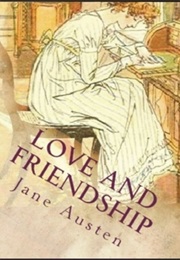

While the novelization declares its intention of turning Austen “upside down”-since the scandalous protagonist of Austen’s narrative will be “entirely vindicated” by this new account-what Stillman in fact achieves across his film and novel is a continuation of Austen’s own ambiguous condemnation of her seductively manipulative heroine, as well as a playful exploration and act of “completion” when it comes to Austen’s chosen narrative form, namely the novel of letters.

In his indignant refutation of the veracity of Jane Austen’s Lady Susan and his conspicuous assertion of both his own unobstrusiveness and significance as a story-teller, Stillman’s narrator (Lady Susan’s nephew, Rufus Martin-Colonna de Cesari-Rocca) establishes a complex, comical series of relationships between Austen’s source narrative and the two adaptations that Stillman derives from it. The declarations cited above occur during the course of Love & Friendship: In Which Jane Austen’s Lady Susan Vernon is Entirely Vindicated, Whit Stillman’s novelization of his 2016 film, Love and Friendship, itself an adaptation of Jane Austen’s epistolary novella, Lady Susan. Many, though, have urged me to recount my own part of this story, that I relate something of my connection to it and my own history from which I have hitherto refrained, with a few punctual exceptions. The reader will perhaps appreciate the restraint I have exercised in removing myself from the narrative.

John Murray, has chosen to include is the last she prepared, in which she turned her account of this history (already decidedly false) into the “epistolary” form then fashionable. Most of these letters, in fact, never existed. The author meanwhile hides her identity under the mask of anonymity, a privilege not afforded her victim, whose actual name is announced in the very title. . . Calling this farrago of misrepresentation a “True Account” is the boldest of libels.


 0 kommentar(er)
0 kommentar(er)
